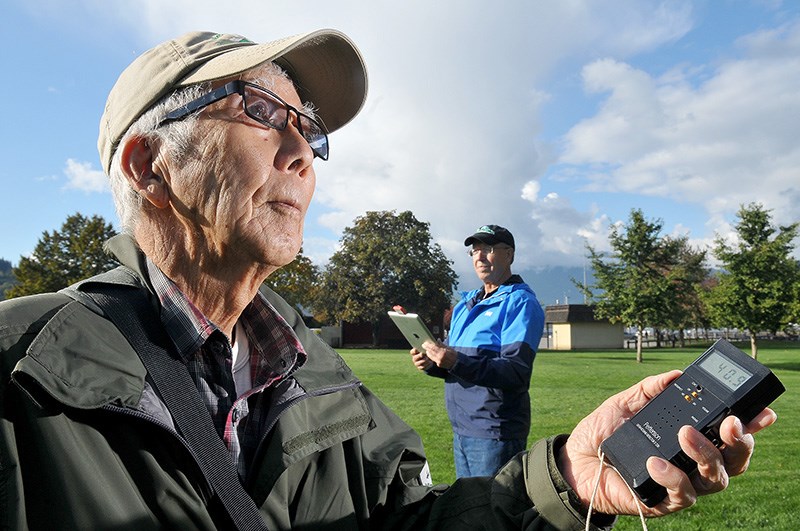Gotham City has one Batman, the Tri-Cities have two.
For the past couple of years, John Saremba and Kiyoshi Takahashi of the Burke Mountain Naturalists have been leading a team of volunteer bat monitors, including Jolene Bonhomme, Cheryl-Ann Bonhomme, and Helga Godfrey, to compile a detailed inventory of the bat population and where they roost in the Tri-Cities.
Wednesday, Oct. 18, they’ll be sharing some of their fascinating finds, along with bat researcher Erin Rutherford, at a free information session about bat conservation in Port Moody.
And make no mistake about it, bats are worth conserving, Saremba said.
A single bat can consume 600 to 1,000 flying insects in an hour, making them one of the most voracious predators of agricultural pests. Some species are prolific pollinators. Fruit bats propagate seeds far and wide.
In fact, Saremba said, bats may be the most important non-commercial animal species on the planet.
It's a shame they have such a lousy public relations department.
Saremba said bats’ nocturnal lifestyle and creepy reputation forged from centuries of lore and legend have also made them one of the least understood creatures.
“There’s not much known about bats,” Saremba said. “They’re hard to band and detect.”
Takahashi, who’s 85 years old, has been working his whole life to correct misunderstandings about bats. He used to catch and play with them when he was a boy growing up in rural Japan because “there were lots of them in the countryside,” he said. “But we wouldn’t touch them because we were so afraid.”
In 1995, Takahashi discovered the rare Townsend’s big-ear bat in Minnekhada Regional Park in Coquitlam and he has traveled around the world to places like Thailand to increase his knowledge of and help raise awareness about bats.
Two years ago, Saremba and Takahashi started formalizing their interest in bats by forging alliances with the various communities in the Tri-Cities to monitor bat populations, build a database and even place bat boxes where colonies can roost safely from predators.
“It’s one thing to say, ‘Let’s do bat awareness,’ but we need data to make it believable,” Saremba said.
Of the 1,200 species of bats worldwide, about six or seven live in Port Moody, including the big brown bat and the hoary bat. Many of them roost around the inlet, where they can skim low across the water and mud flats to catch dinner like mosquitoes.
In the winter, some species migrate to warmer climes, like Mexico and Arizona, while others retreat to secret caves where they can slow their heart rate from 200 beats per minute to 10, and they can survive for six months without eating.
Saremba said some bats can live up to 30 years, they’re good mothers and they communicate with each other.
“You come to love them,” he said.
But development of their habitats and disease such as white nose syndrome are putting local bat populations at risk, Saremba said.
That’s why educating people about bats and the importance of bat conservation efforts like building bat boxes is so important, Saremba said.
The city of Port Moody is planning to install two bat boxes on either side of the inlet, at Rocky Point Park and at Old Orchard Park, to support new colonies, said Lesley Douglas, the city’s general manager of environment and parks.
“These specially constructed boxes provide important habitat for bats, giving them a safe place to roost during the day," Douglas said.
In total, the Burke Mountain Naturalists’ bat team is hoping to have 10 bat boxes throughout the Tri-Cities, including a bat “mini-condo” that can hold 1,500 bats that it plans to install at Colony Farm.
“I see a growing recognition of bats,” Saremba said. “But we’re only just at the start.”
• The Batty for Bats information session will be held from 7 to 9 p.m. Wednesday at the Old Orchard Hall (646 Bentley Rd.). Advance registration is required. Email [email protected] or call 604-469-4628.



